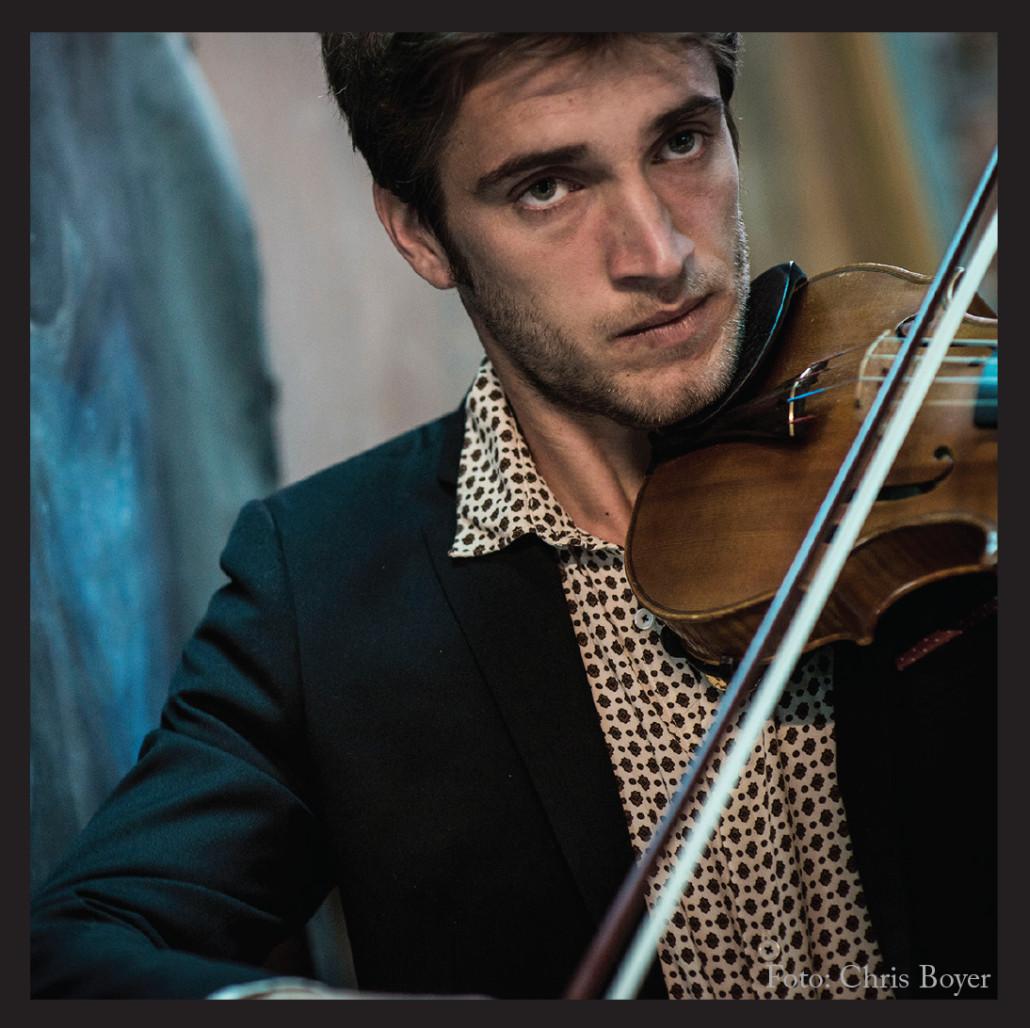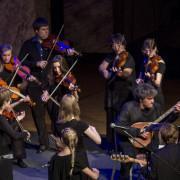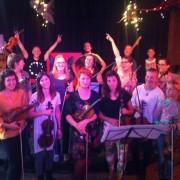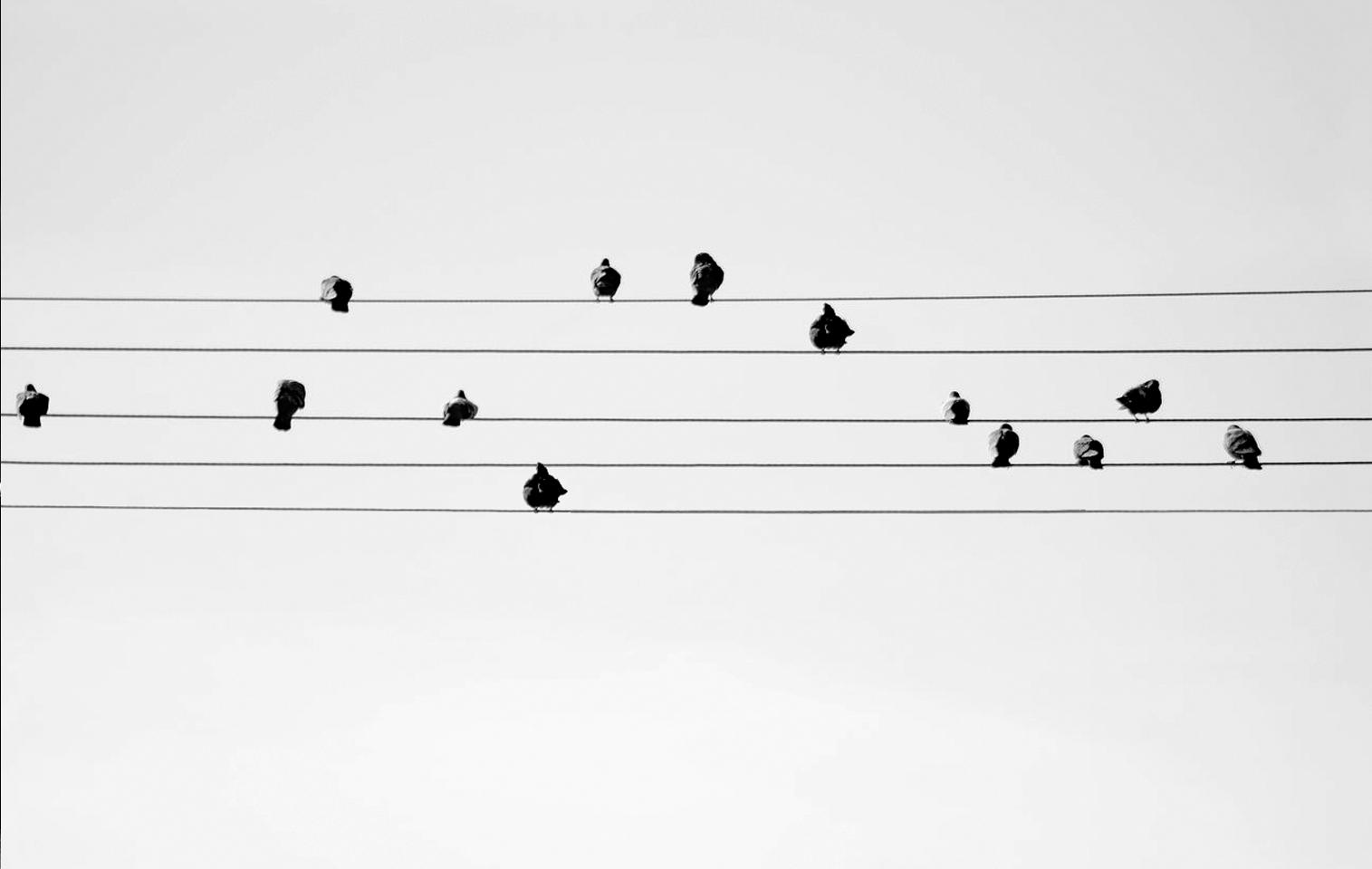Special courses – Jean Christophe Gairard – ROMANIAN VIOLIN
When: 8–10 January 2016
Where: Rimska cesta 2b, Ljubljana
Who:
Jean was born in 1987 in France. He got his certificate in Violin, Chamber music and Musical formation at the National Music Academia of Aix-en-Provence in 2003. He was developing his violin skills by extensive work on improvised music, especially jazz and swing, by playing chamber and orchestral music at his Academy, and by superior studies at the National Music Academia of Aix-en-Provence under the direction of Michel Devert. In addition to his own violin studies, he has also cooperated in the large-scale project on transcription and conservation of traditional Romanian folk tunes.
He collaborated and performed with numerous significant music groups, such as European Symbolic Orchestra of Ljubljana, Tchayok trio (Russian and Russian-gipsy music), Troïka ensemble (Russian music), Big Band Outch Men Orchestra, Clair de Lune formation in Romania, Tzwing quartet… He experienced many music styles in cooperation with famous musicians: Moldovan cymbalist Mihai Trestian, Moldovan accordionist Andreï Tasnicenco, Romanian accordionist Roberto de Braşov, French violinist Emilio Castiello, Romanian violinist Marcel Râmba, and Manouche musician Tcha Limberger, just to name a few. He founded music groups such as: Flamenclasico project, a synthesis of Flamenca music and classical Spanish music , Violin Summit duo in collaboration with the world-class violinist François Arnaud, Aalma di Luna sextet, a fusion of Clair de Lune and Aalma Dili trios.
He was a Masterclass teacher at the Initiation to improvised Manouche Swing in the Grand Théâtre de Provence in 2009 and in 2011, he led weekly classes of Balkanic music in Steiner schools.
What:
ROMANIAN VIOLIN
Tunes and technical specificities of violin playing in Romania.
The Romanian musical tradition is made up of several different regional styles. Transylvania gathers one of the richest heritages in the region, with its historical admixture of Hungarian, Romanian, Jewish, Roma (gipsy) and German traditions.
We will study traditional tunes from Transylvania with different dance rhythms and specific phrasings, bows strokes and ornaments. We will also learn accompaniment and secondary voices.
Required level:
Good technical knowledge of the instrument. Acquisition “by ear” and not only by reading.
Video:
Timetable:
Friday, 6pm–9pm;
Saturday 10am–1pm, 4pm–7pm;
Sunday 10am–1pm, 4pm–7pm, final performance;
Participants are required to attend all workshops of the course.
Price:
150€/workshop ; 450€/yearly participation (90€/workshop)
Deadline for an application:
8 days before each workshop
Deadline for payment :
September 24th for the yearly participation.
For one course: on the day of the course.
Yearly participation has to be paid in 3 amounts of 150€ (before the September, November and January courses)
If you wish to be a part of our courses, just send a mail on: mail.specialcourses@gmail.com and we will send you an invoice.









